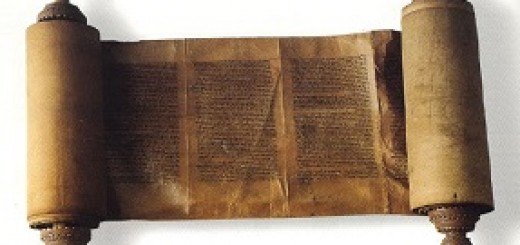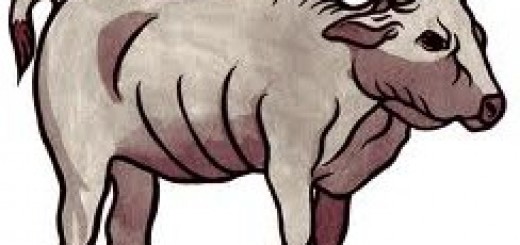By Avner Friedmann
The Torah states[1]: “you should make a Table (Shulchan) of acacia wood…On the Table shall you place showbread before Me, always.” Our parsha gives further details[2]:”you shall take fine flour and bake it into twelve loaves… You shall place them in two stacks, six in each stack, upon the pure Table, before Hashem…Each and every Shabbat he shall arrange them before Hashem continually, from the children of Israel as an eternal covenant. It shall belong to Aaron and his sons, and they shall eat it in a holy place…”
The Table was covered with pure gold and was placed near the North wall inside the Mishkan (The portable sanctuary in the desert) and later in the Beit HaMikdash (The Holy Temple in Jerusalem). It had the twelve loaves of showbread on it at all times. They were baked every Friday and put on the Table on Shabbat, at which time the old loaves were removed and divided among the Kohanim (the priests). The bread miraculously remained fresh all week[3].
The Holy Zohar[4] says that our tables at home today are branches of the Table in the Mishkan which was the source of all the physical blessings and the foods on all the tables around the world. There was never a moment when the showbread was not found on the Table in the Holy Temple. This meant that at any given time around the world when people ate, they could benefit from its blessings. This is why many are accustomed to always leave some bread on the table when making the blessings after the meal, because blessings are not found on an empty table, just as it was in the Holy Temple. When bread is found on the table however, blessings can have a place to rest upon. The Ben Ish Chai[5] adds that one must be careful not only to leave the bread, but all leftover foods, even if the intention is to dispose of them after the meal.
To sanctify our table and elevate the food, blessings before and after the meal are recited. In addition our sages tell us that words of Torah should be shared at the table as well, not only on Shabbat, but during the weekdays as well[6].
Eating is one of our main desires, and since we eat several times a day, it provides a great opportunity to sanctify ourselves. The stronger the desire for something, the greater the opportunity there is to elevate ourselves. The Zohar, therefore, states that when words of Torah are said, our souls are being purified from the physical desires and pleasures, and we come closer to Hashem. However, if words of Torah are not said, our animal soul becomes strengthened and our nature becomes more physical and distant from Hashem.
The Zohar continues and says[7] that the evil forces of the “other side” (Sitra Achera), which includes our evil inclination (Yetzer HaRa) are at the table and are waiting for the opportunity to draw blessings for themselves and to receive their portion in the meal. This is what King David meant when he said[8]: “You will prepare a table before me in full view of my enemies.” Meaning, “Please remove my enemies, the negative forces that are at my table waiting to take their share”. This is one reason why we wash our fingers with some water at the end of the meal, before reciting the blessing. In doing so we clean our hands from any impurity left on the tips of our fingers. This water becomes the sustenance of the Sitra Achera; it is its share in the meal; and therefore helps keep our table pure. The practice of washing the fingers after the meal was not done at the Mishkan and the Temple; since there the Table remained pure at all times.
During the meal, if a person has proper thoughts, eats slowly and in moderation, minimizes idle chatter and speaks words of Torah, he merits blessings and his sins are atoned. The Angel in charge of the abundance of food takes his words and the image of this table, before Hashem and declares[9]: “This is the Table before Hashem.” Therefore some customarily recite this verse prior to reciting the blessing after the meal.
The Torah commands us at the end of the meal to always bless Hashem for all the goodness He has bestowed upon us, as it is written[10]: “And you will eat and you will be satisfied, and bless Hashem, your G-d, for the good Land that He gave you.” The Zohar says[11] that the table could become a means for a person to merit physical sustenance in this world and spiritual sustenance in the World to Come.






















